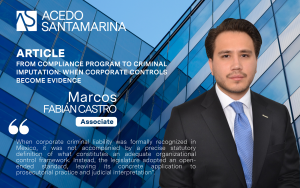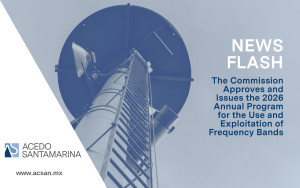On July 16, 2025, after months of speculation and debate, the Decree enacting the Law on Telecommunications and Broadcasting (the “New Law”) was finally published in the Federal Official Gazette (“DOF”). This New Law repeals the current Federal Telecommunications and Broadcasting Law (“LFTR”).
The New Law originates from the Reform on Organizational Simplification, published in the DOF on December 20, 2024, which dissolves various autonomous constitutional bodies, including the Federal Telecommunications Institute (“IFT”), and establishes, through its transitory provisions, the creation of a new regulatory framework for the telecommunications and broadcasting sector.
Among its main structural changes, the New Law provides for the creation of the Telecommunications Regulatory Commission (“CRT”), a decentralized administrative body of the Digital Transformation and Telecommunications Agency, which will act as the new regulatory authority in the sector. The CRT will be composed of five Commissioners, including the Chairperson, all of whom will be appointed directly by the head of the Executive Branch and ratified by a majority of the Senate.
According to the transitory provisions, the New Law will enter into force the day following its publication in the DOF. However, until the CRT Plenary is formally constituted, the IFT will remain in operation. On the day following the formal installation of the CRT Plenary, the LFTR will be officially repealed and the IFT will be formally dissolved.
The CRT will no longer have exclusive authority over antitrust matters in the telecommunications and broadcasting sector – powers that, to date, were held by the IFT. These matters will now fall under the jurisdiction of the National Antitrust Commission (“CNA”), the body that will replace the Federal Economic Competition Commission. Proceedings initiated by the IFT in antitrust matters will continue under the CNA.
Finally, from the moment the CRT Plenary is constituted, all ongoing proceedings and procedures will be suspended for a period of fifteen days, except for compliance obligations applicable to economic agents in the telecommunications and broadcasting sector holding any form of enabling title for the provision of such services.
While a full analysis of the New Law is still underway, it will be essential to monitor upcoming changes to secondary legislation and ensure that, over time, the disappearance of the IFT as an autonomous body does not result in excessive regulation of the sector.
At Acedo Santamarina, S.C., we remain at your service to provide legal counsel regarding the scope and implications of the New Law.




